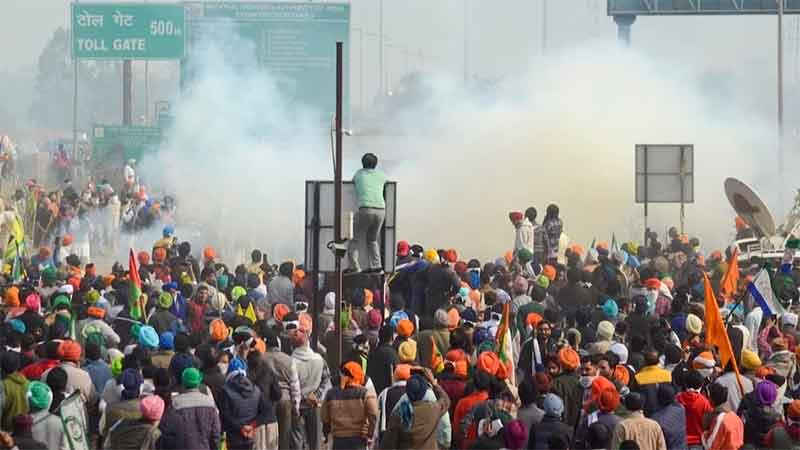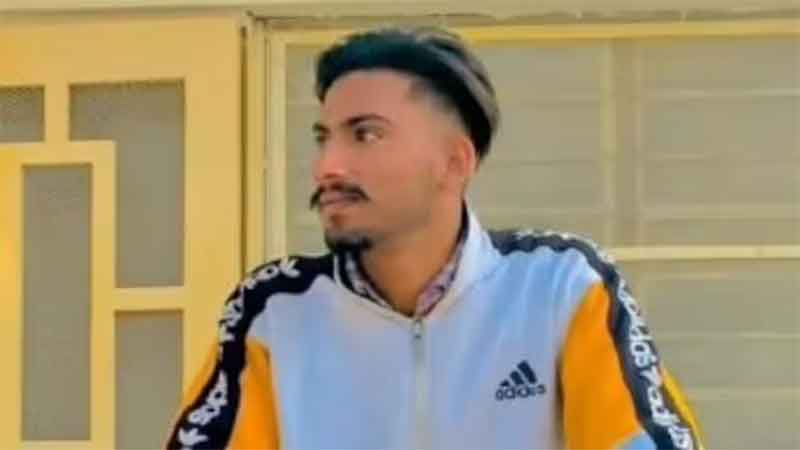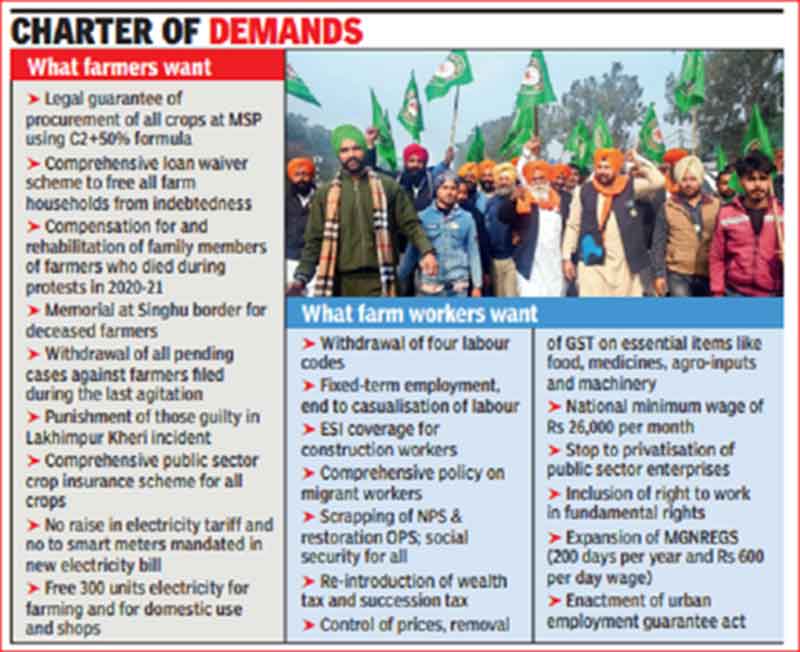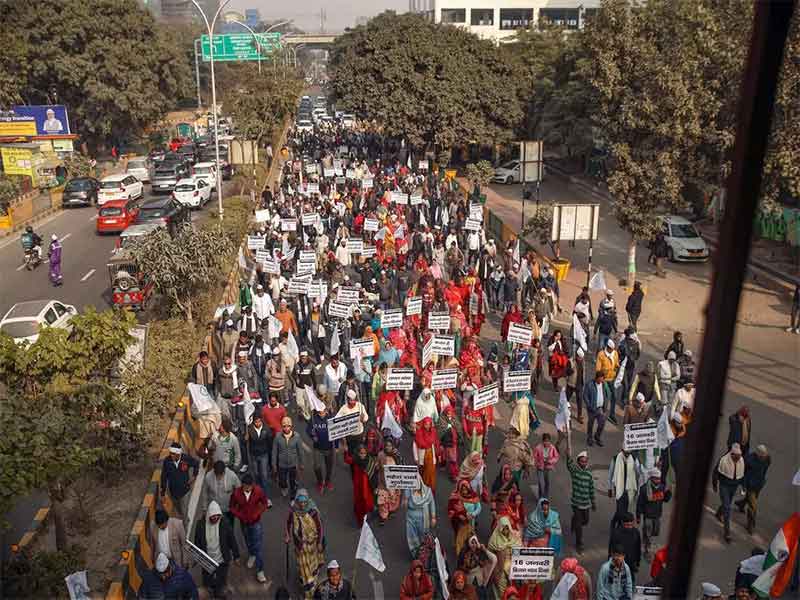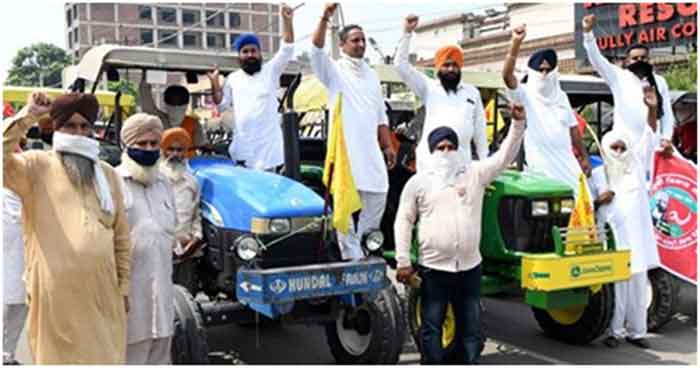
“If among the band of robbers, knowledge of robbing is obligatory, is a pious man to accept the obligation? So long as the superstition that men should obey the unjust laws exists, so long the slavery will exist”- Mohandas Karamchand Gandhi (Hind Swaraj, 1909)
With the new ‘farm laws’ democratic India’s saga of forced marriages remains in continuity. India remains quite famous for its forceful arranged marriages and except from the ‘individual will’ of the couples, the family decides what is right for the ‘boy or girl’. In similitude to this particular phenomenon, contemporary India’s ruling party decides – which particular trajectory/law is good for ‘Naya Bharat’ (New India) or ‘Atmanirbhar Bharat’(Self – reliant India). From Demonetisation to Food to Netflix Kisses to Love Jihad and to the recent Farm Laws – the domain of intervention for the upliftment the Indian citizens, duly defines their totalitarian approach. And the approach itself remains inversely proportional to the ‘idea of India’.
Philosophical contours of a good ‘culturally forced marriages’ for new India has several layers attached to it. They have relatives in their party who has either left his wife like our fufafji (uncle) or have become yogi/godly saint like our mamaji (uncle) – but they have a ‘doctorate’ on philosophy marriage and love, hence ‘Love Jihad’ is bad for this nation. Notwithstanding the huge spectrum of knowledge they keep in their ‘fakir’s jholi’, they have some notorious khap panchaytis (fringe elements) members and distant ultra – cultural relatives by their side. They are popularly known as ‘IT CELL/GODI MEDIA PEOPLE’ – who all in new digital era are graduates from Whats App University. And their sole agenda is to nullify the hegemony of ‘WE THE PEOPLE’ for the legitimacy of totalitarian state.
The whole family vouching for new India – firmly believes in the narratives of golden past glories and present degeneracy, for which, they are carrying the ‘Brown men’s burden’. This degeneracy started with Pandit Jawaharlal Nehru and with the birth of ‘idea of India’ in 1947. Precisely, just like Britons, they are on a ‘civilizational mission’ and this mission has totally gripped the minds of ruling party. For them, DEMOCRACY means – ‘it is my (regime’s) way or highway’. In short – their conservative encyclopaedic or totalitarian view should channelize the fates of Indian citizen. And as government has taken their firm stand on ‘Farm Laws’ for a forceful arrange marriage between farmers and corporates; farmers have resisted it and are standing on the highways.
A Bullish Relationship Proposal – Three Farm Laws, 2020
Amidst the COVID -19 pandemic, the government instead of listening to the stakeholders on farmers issues went against their free voices and duly finalised a bullish relationship proposal for them. A Similar trajectory was followed on Kashmir issue, NRC – CAA issue, Electoral bond issues et al. On September 20th 2020, the three Farm Laws, (which was not asked by any of the farmers or their unions in any of their demands across India) was blatantly passed in Rajya Sabha by flouting all rules. Some opposition leaders tried to voice out their concerns, but, they were suspended and duly thrown out of the House. These bullish proposals were –
- Farmers Produce Trade and Commerce (Promotion and facilitation), Act, 2020
- The Farmers (Empowerment and Protection ) Agreement on Price Assurance and Farm Services Act, 2020
- The Essential Commodities (Amendment) Act, 2020.
The farmers who stood and still standing against this forced bullish marriage proposals, have duly shared their concerns against the new laws. In brief, one can point out their concern as follows –
- First Law mentioned above will do away with Agriculture Produce Market Committee (APMC) or Mandi system and Minimum Support Price (MSP) will become the thing of past. It is not only an attack on the federal structure of Indian Union (as states and opposition were not heard before passing of the Bill); but also a move towards one nation one market. Large traders and corporates will dominate market for their benefits, as they will be allowed to set up the parallel markets or their own mandis. Apart from the repeal demand of the law itself; farmers want legal guarantee on continuation of MSP’S.
- Second Act propounds that – farmers may enter into contracts with agents, traders, businesses and multinational corporations on ‘pre – agreed price’. With the advancement in technology, Government firmly believes that farmers will/ can predict or foresee their crops prices. Section 19 of the same Act puts any jurisdiction in regards to any dispute between farmers and corporate – out of ‘civil courts’. So, even in case of any dispute or irregularities the legal recourse will remain out of box for a common farmer.
- Third Law allows the big business houses to manipulate prices of essential goods like onions, pulses, potatoes, oilseeds etc. as this amendment deletes these produces from essential commodities list. In rendering commodities inessential through law – makes their hoarding completely legal. Big traders can easily manipulate the rates under this law and can easily manipulate the farm gate prices (the net price of the product when it leaves the farm, after marketing costs have been subtracted.). The Corporate house for their profit can delay the buying process, until the farmers becomes desperate to sell at any lowest prices. It is plain and simple – stockist shall decide the price and farmers will lose their bargaining power. And even the consumer will face the market’s heat.
Farmers want no more than repeal of these draconian laws, they firmly believes that – the basic paradigm behind these three Acts remains corporatisation /commercialisation of agriculture. This will build up a new ‘hierarchy of landlords’ who will be the agents of corporate houses. Interestingly, it is quite similar to the commercial policies and planter Raj system of Colonial era. And taking a leaf out of modern economic historical discourse, where historians have described the same system as – ‘Drain of Wealth’ from India to Britain; farmers are having a fear of their ‘Drain of wealth’ to corporate houses. Hence, they are following the highway of democratic protest against such a bullish decision.
Resoluteness versus Revolutionary Child: Will the Saga end?
The protestors against the forced decisions have camped themselves along at least five major highways in and around New Delhi. Twenty farmers have been killed due to chilling cold. The death of any individual is of course a tragedy, and it is a tragedy for his/her entire family too. But for the regime, that was remorseless when more than hundred people were killed during demonetization, remains unrepentant now too. A kind of rare and layered ‘Politicide’ has gripped the Indian nation since 2014.
Initially, in similitude with the other revolutionary protests since 2014 – the farmers too were labelled as – Terrorists, Khalistani groups, Pro –Pakistani/Chinese, Anti – National, Tudke – Tudke Gang and what not. Just as someone who go against the conservative institute of casteism for marriages are thrown out of society and being called as outcaste; similarly in contemporary India any protest against the right wing ruling party, will make you an outcaste. But the revolutionary children this time not only represent the majority of population, but are also aware of the fact that, ‘hunger and poverty’ remains the bigger anathema compared to being called as an outcaste. Farmers know that the ‘three black laws’ will devastate their earnings and lives. As the behavioural political pattern of negating any anti – establishment protest by ruling party was fizzled out against the farmers; government called the so called anti – nationals for talks. But still after several rounds of the talks, the impasse exits. The latest proposals by the government indicate that it is quite ready to amend the Laws; but will not repeal it. On contrary, farmers want the Acts/Laws entirely to be repealed along with making minimum support price a legal entity.
If government can hold talks and are agreeing on the most of the demands of farmers, the basic question remains – why they cannot repeal it? The answer remains quite clear, just like any right wing conservative people/party across the world – a pullback will become a signature of weakness. And the resoluteness and reputation of ‘Mota Bhai’, who leads the family of ‘ek sau tees crore deshvashi’ (130 crore Indians) will be hampered. Thus, the whole protest by revolutionary child this time has directly challenged the core of their systematic politics. The vocabulary of ‘realising a mistake’ happens not be a part of their political grammar.
The fact of the matter remains that – the farmers protest have by far thrown the biggest challenge to the present Indian regime’s saga of arranging marriages for its citizens. Government remains adamant about this marriage too. They will not backtrack because as the common saying goes in Hindi ‘Ye unke naak aur izzat ka saval hai’ (it is a matter for their pride). And as Hannah Arendt have mentioned in her book, ‘The Origins of Totalitarinism’, “In the language of the Nazis, the never resting, dynamic ‘will of the Fuehrer’ – becomes a Supreme Law”. What if that the farmers are protesting and dying, talks are going on, farmers want repeal of the law ; the honourable, dynamic, never resting SUPREME LEADER thinks it as historic, game changer, revolutionary, crucial for nation’s development and bigger move towards ‘Naya Bharat’.
To conclude, without any shadow of doubt India’s agricultural sector needs comprehensive politics and policies to overcome the existing crisis of the sector. But in democracy both politics and policies emanates by the people, for the people and of the people and the recent farm laws which came through ordinance amidst pandemic remains – by the regime, of the regime, and for the regime ( one should not overlook electoral bonds and corporates donation to the present regime). And this time it has hit more than fifty percent of India’s population. It will be an interesting phenomenon to see – whether the saga of forced marriages in a democratic nation will continue or shall rest in peace.
Dr Biplove Kumar, Assistant Professor, Department of History, , Vivekananda Satavarshiki Mahavidalya, Vidyasagar University, West Bengal. India. Email: [email protected]
SIGN UP FOR COUNTERCURRENTS DAILY NEWSLETTER

